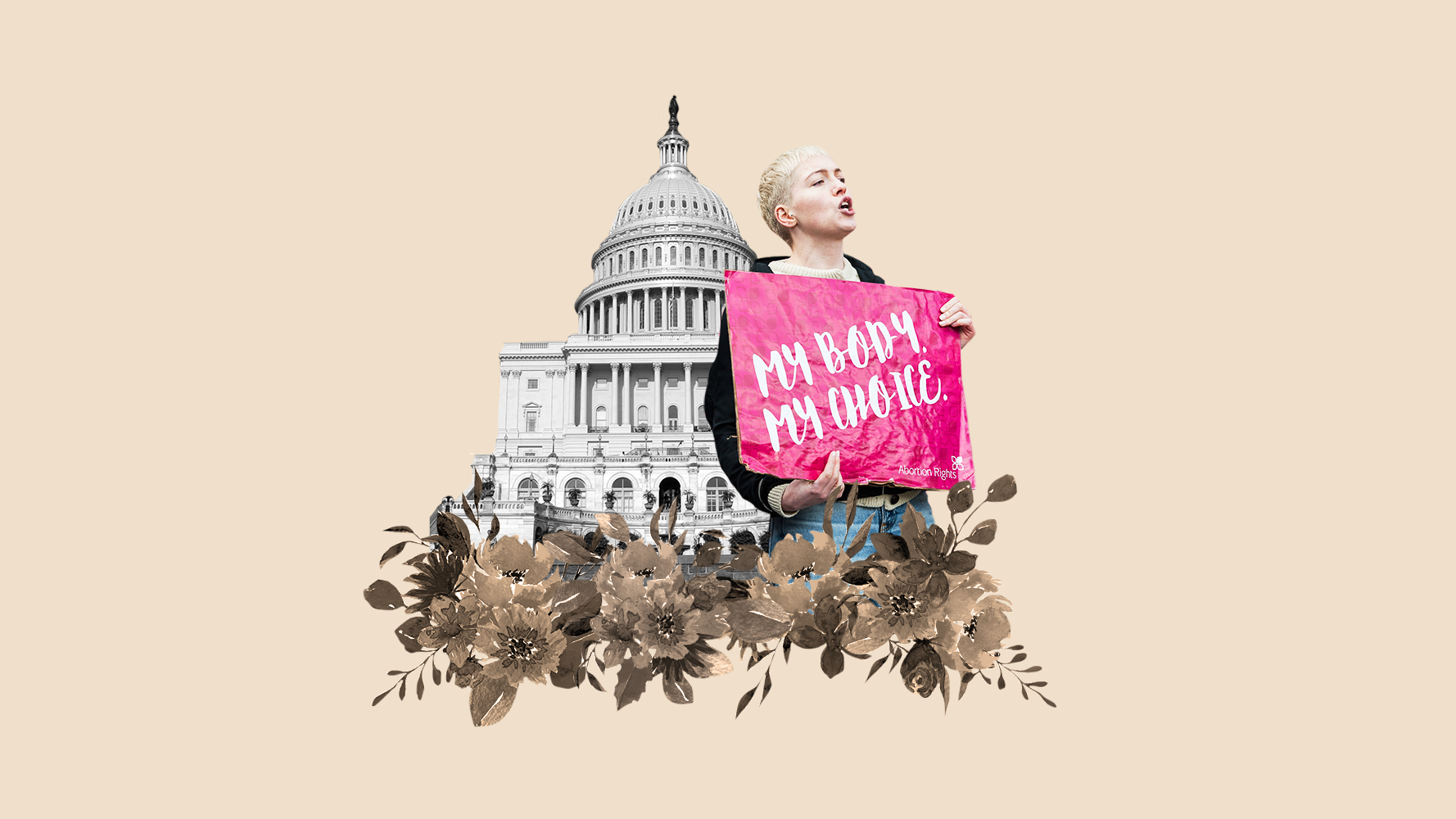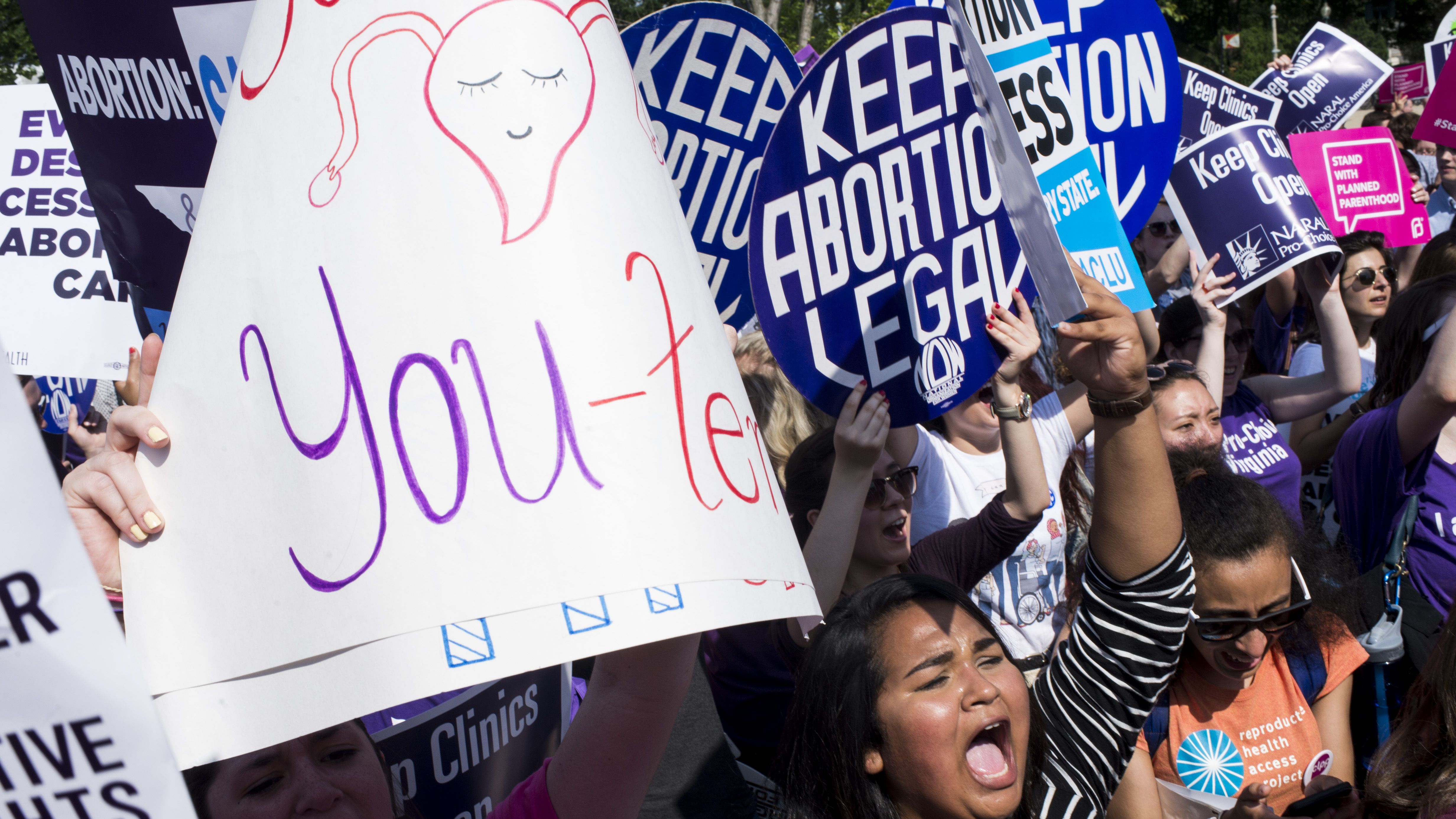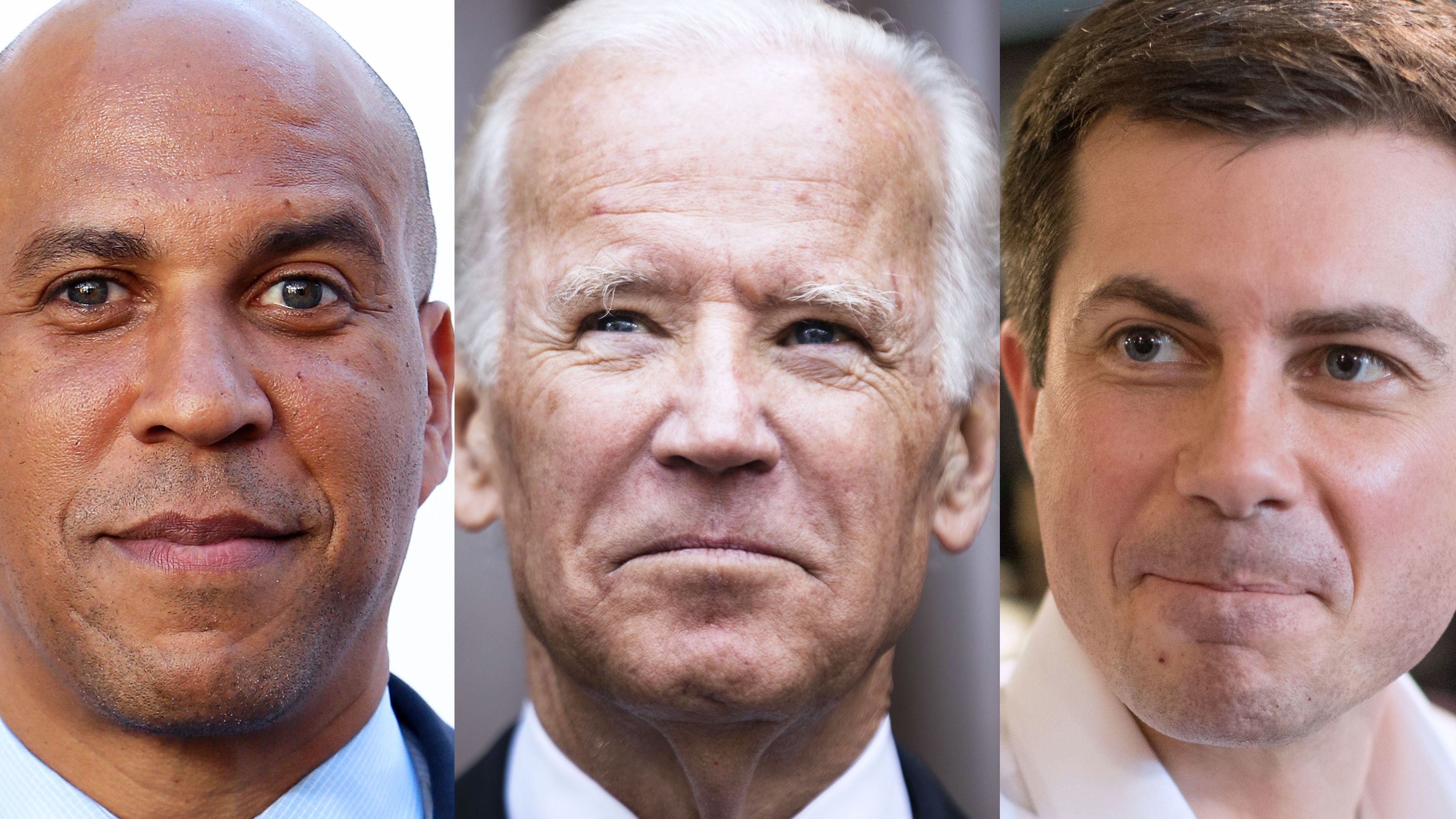With Alabama's Abortion Ban, Things Are Looking Bad for the Future of Roe v. Wade
Anti-choice lawmakers are introducing extremist bills at an alarming rate, setting reproductive health up for a major court fight that it could lose.

This article has been updated to reflect the passage of Missouri's eight-week ban and the signing of Alabama's bill by Governor Kay Ivey.
Reproductive healthcare is in serious peril. Just this week, Alabama passed HB314, the country's most restrictive abortion ban. Not only does it outlaw the procedure in nearly all instances, it also targets doctors who perform abortion, making such action a felony punishable by up to 99 years in prison. After a shouting match on the Senate floor last week that briefly tabled the bill, it was pushed through the Senate without exceptions for rape and incest. On Wednesday afternoon, Governor Kay Ivey signed it. Under the legislation, the procedure would only be allowed if the pregnancy risked the mother's health.
And last week, Georgia Governor Brian Kemp signed into law an effective ban on abortion, outlawing the procedure after a fetal heartbeat is detected—something that can happen as early as six weeks, before many women* even know they’re pregnant. It makes Georgia the fourth state this year to approve such a ban, and both the ACLU and Planned Parenthood have already announced legal action against both Georgia and Alabama.
You might be thinking: With the landmark 1973 Supreme Court case Roe v. Wade, which constitutionally protected a woman's right to choose, shouldn't these laws automatically be deemed unconstitutional? Well, the anti-choice lawmakers behind these restrictive bills are actually betting on there being legal challenges to them. Newly emboldened by the appointment of Brett Kavanaugh to the Supreme Court, lawmakers are hoping that any such suits make it all the way to the highest court, which could lead to an eventual overturn of Roe.
Though many lawmakers who push for these restrictions cite a moral issue with abortion, the increasing attacks on reproductive health don’t make good electoral sense. “We know that more than 70 percent of the public supports access to safe and legal abortion,” says Rachel Sussman, National Director of State Policy and Advocacy at Planned Parenthood.
“It seems like every day there’s a new thing and that’s because there really is,” says Amanda Thayer, Deputy National Communications Director for NARAL, the national pro-choice political action organization. “The folks behind these bills are not hiding the true intent behind them. They’re saying, on the record proudly, that these bills are designed specifically to take a swipe at Roe v. Wade.”

At least 36 states have introduced anti-abortion legislation this year, and many of them use the same basic model legislation framework, creating a few trends. The TRAP laws favored by anti-abortion legislators for years—“targeted regulation of abortion providers,” which seek to do things like force doctors to have admitting rights at hospitals, or impose arbitrary rules on health centers that they can't possibly meet—haven’t gone anywhere, but they seem almost quaintly incremental compared to the extremist bills being introduced around the country this year.
Get exclusive access to fashion and beauty trends, hot-off-the-press celebrity news, and more.
So what kinds of bills are we seeing, just how much are they rolling back the constitutional right to an abortion, and why are they cropping up everywhere from the sun belt to the rust belt? More importantly, what can regular folks do now, and in case these bills ultimately succeed in bringing down Roe? Let's take a look.
What's an early abortion, and how are lawmakers trying to ban it?
Sometimes erroneously called a “fetal heartbeat bill,” this legislation aims to ban abortion before the time many women even realize they’re pregnant. It outlaws abortion when an ultrasound can pick up the murmur of what would eventually develop into a fetus's heartbeat. Rep. Alexandria Ocasio-Cortez said it well:
“6 weeks pregnant” = 2 weeks late on your period.Most of the men writing these bills don’t know the first thing about a woman’s body outside of the things they want from it. It’s relatively common for a woman to have a late period + not be pregnant.So this is a backdoor ban. https://t.co/xWd9GAj51bMay 8, 2019
According to Sussman, of the 290 abortion restrictions introduced so far this year, more than half were bans—and the most common of those is the six-week ban. “We started seeing them maybe 10 years ago, but it wasn’t really until this year that I would have said the six-week abortion ban is an actual trend,” she explains. “I think it really shows where we are in this moment. State politicians are pushing an aggressive, aggressive anti-abortion agenda that really seeks to do one thing, which is to ban abortion outright.”
And these bans are becoming a lot more common. According to Planned Parenthood, there’s been a 63 percent uptick from last year in early abortion bans, like the one in Georgia. But that doesn't mean they're popular: Georgia's ban only passed by one vote, and lingered on Kemp’s desk for weeks before he finally signed it.
Despite Kemp's openly anti-choice agenda, there was good reason for him to hesitate: Not only does the new bill limit access to healthcare in a state that already has one of the worst maternal mortality rates in the country (according to the department of health there were 37.2 maternal deaths per 100,000 residents in 2016), but it also faced a massive backlash. The entertainment industry, which brings in tens of billions of dollars to the state per year, has vowed a boycott on using Georgia for filming locations.
Of course, not all anti-abortion legislation is as openly aggressive. Some of it is far more covert.

What is a trigger ban?
Currently passed in six states (Arkansas, Kentucky, Louisiana, Mississippi, North Dakota, and South Dakota), a so-called “trigger ban” goes into effect should Roe fall in the Supreme Court, automatically setting off a ban on abortion anywhere it’s passed. “I certainly think that efforts to enact trigger bands are an acknowledgement that [legislators] believe they’re going to have an opportunity for Roe to be overturned with this new court,” says Sussman. She notes that, unlike six-week bans on abortion, which are almost always challenged in court, a trigger ban could be a way for some states to avoid the time and costly fees that come with prolonged litigation, while still stripping people of their rights.
Which states are most actively trying to ban abortion?
Hard to say, but Missouri is making a real effort. The state has presented one of the most comprehensively anti-choice bills currently circulating, the omnibus bill. It's actually a bundle of legislation that includes things like a ban on all abortions once a heartbeat is detected, an amendment that bans all abortions after 20-week gestation, and a trigger bill that would automatically make abortions illegal should Roe fall.
“I think the Missouri bill represents really just the most radical and extreme version of the attempt to ban abortion,” says Sussman. “And the reason I would describe this as radical is because it doesn’t particularly make sense, right? If you have one bill that’s banning abortion at six weeks, but also have a total abortion ban, but it’s also banning it at 20 weeks, it’s literally just all of the bad types of abortion bills compiled into one.”
She adds, “This lays bare the political ideology and the extreme nature of what it looks like when state legislatures who know nothing about medical care seek to ban abortion.”
UPDATE: One day after this piece was originally published, the Missouri Senate passed a bill that would effectively ban abortion after eight weeks. It contains no exceptions for rape and incest, and would make it a felony, punishable by up to 15 years in prison, for doctors to perform abortions after the eight-week cut-off. Like Georgia, Missouri also has one of the worst maternal mortality rates in the U.S., a nation with higher-than-average maternal mortality among other developed nations.
How likely is it that the U.S. will lose its constitutional right to abortion?
While the experts I spoke to didn’t feel it was productive to give a timeline, they did express extreme concern. On the one hand, challenges to these restrictive bills are necessary—activists and pro-choice lawmakers can't sit by while reproductive health is chipped away in state after state—but any case that makes it to the Supreme Court will put the constitutionality of abortion in front of justices who haven't been shy about their stances on reproductive rights.

While we don't know for sure how the current court would rule, there's ample reason to suspect that Roe is in imminent danger. In February, Brett Kavanaugh wrote his first dissent on this court, in a 5-4 case that issued a stay on a bill that would shutter two of the remaining three clinics in Louisiana that offered abortion. The bill itself was a typical TRAP law, requiring abortion providers to have admitting privileges at hospitals within 30 miles of their clinic—an undue burden that many providers simply can’t follow. There was plenty of reason to issue the stay: Just three years ago, the Supreme Court struck down a law that did nearly the same thing in Texas, citing it as unconstitutional for the same reasons.
In his dissent, Kavanaugh essentially argued that it was reasonable for the state to impose the TRAP law because it would take 45-days to go into effect, which would give doctors some time to secure the necessary admitting rights. Except that there's no single standard for how admitting rights are granted, and so a bill that was allegedly introduced as a way to protect those seeking reproductive healthcare was actually an "intellectually dishonest" way to shut down clinics.
But what made Kavanaugh's dissent especially scary is that though he suggested during his fraught nomination hearings that, whatever his personal beliefs, he would uphold precedent where Roe v. Wade was concerned, by dissenting on the Louisiana stay he demonstrated that precedent isn’t actually that important to him.
“He basically threw precedent out the window,” says Thayer. “That’s a sign that affirms our fears about where he falls on the issue...in addition to his really egregious record on it.”
Of course, it seems pretty obvious that anti-abortion lawmakers anticipated his stance on this issue, judging by just how enthusiastically they’ve been pursuing restrictions in 2019. “I think it’s further proof that the reason the anti-choice side is so excited about this current Supreme Court is because Kavanaugh is part of their answer in the ultimate pursuit of ending Roe v. Wade.”
Is there any good news on the pro-choice front?
Before you start fretting that we’re making a B-line toward Handmaid’s Tale territory, there is some light. At present, 10 states have codified Roe into their constitutions, with New York passing a comprehensive law just this year that would protect abortion access even if Roe were overturned on the federal level. Not only that, but Rhode Island, Maine, and Illinois are all working on bills to expand and protect abortion access should Roe fall.
What can you do?
Well, Alyssa Milano has proposed a sex strike, but people are somewhat understandably taking issue with that.
If more direct action is your cup of tea, Planned Parenthood has a petition you can sign that will tell politicians to stop the bans, which you can add your name to here.
Thayer also says that, fundamentally, it’s important to stay educated about the legislation where you live. “If there's an election in your state where an anti-choice legislator is up for reelection, work to make sure that person doesn't get reelected. Volunteer. Make calls,” she says. “I think there's an education component and then there's an action component.”
NARAL also has a handbook and volunteering opportunities, which you can find at Reality of Roe.
RELATED STORY

Cady has been a writer and editor in Brooklyn for about 10 years. While her earlier career focused primarily on culture and music, her stories—both those she edited and those she wrote—over the last few years have tended to focus on environmentalism, reproductive rights, and feminist issues. She primarily contributes as a freelancer journalist on these subjects while pursuing her degrees. She held staff positions working in both print and online media, at Rolling Stone and Newsweek, and continued this work as a senior editor, first at Glamour until 2018, and then at Marie Claire magazine. She received her Master's in Environmental Conservation Education at New York University in 2021, and is now working toward her JF and Environmental Law Certificate at Elisabeth Haub School of Law in White Plains.